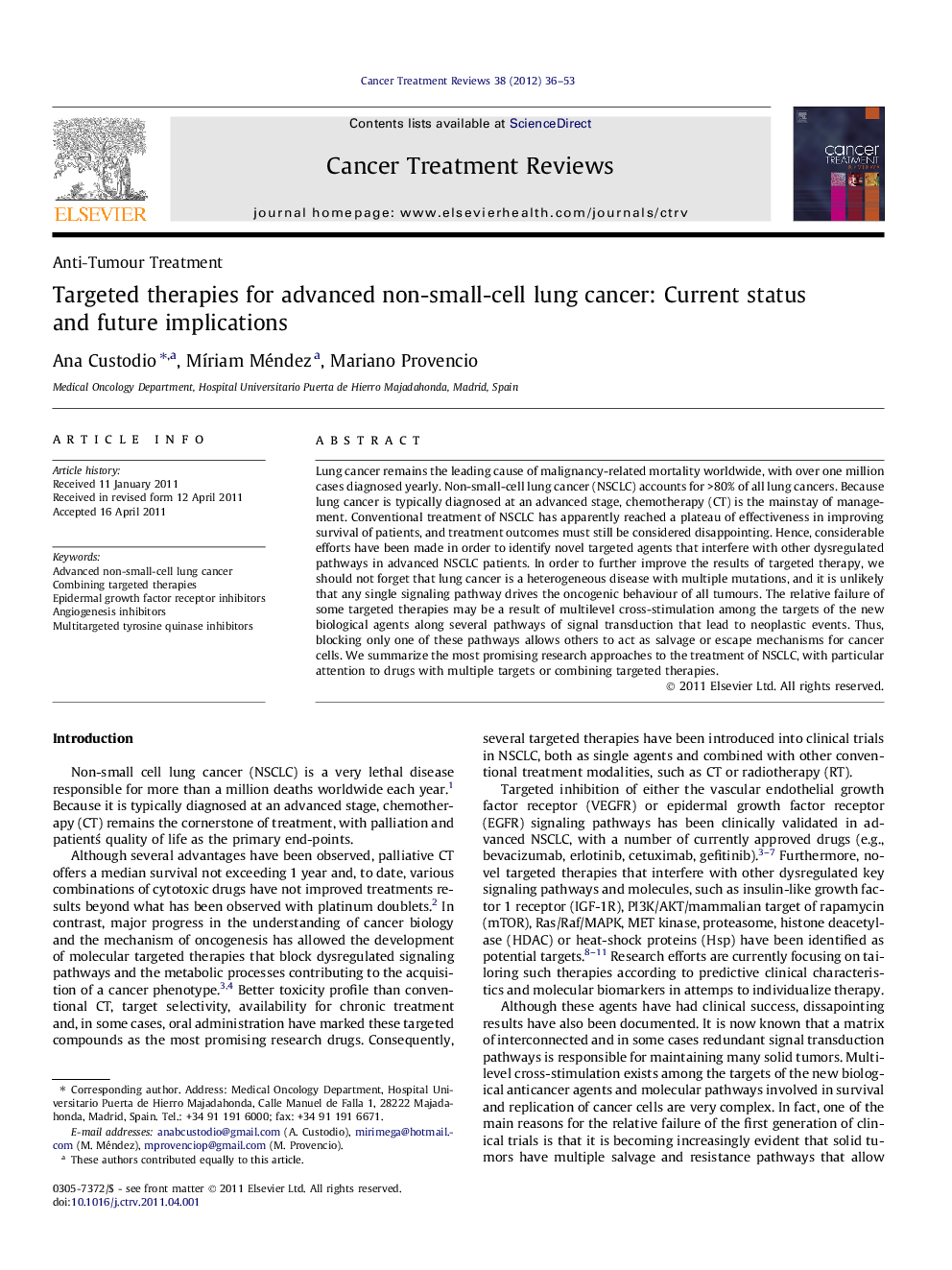| Article ID | Journal | Published Year | Pages | File Type |
|---|---|---|---|---|
| 3980306 | Cancer Treatment Reviews | 2012 | 18 Pages |
Lung cancer remains the leading cause of malignancy-related mortality worldwide, with over one million cases diagnosed yearly. Non-small-cell lung cancer (NSCLC) accounts for >80% of all lung cancers. Because lung cancer is typically diagnosed at an advanced stage, chemotherapy (CT) is the mainstay of management. Conventional treatment of NSCLC has apparently reached a plateau of effectiveness in improving survival of patients, and treatment outcomes must still be considered disappointing. Hence, considerable efforts have been made in order to identify novel targeted agents that interfere with other dysregulated pathways in advanced NSCLC patients. In order to further improve the results of targeted therapy, we should not forget that lung cancer is a heterogeneous disease with multiple mutations, and it is unlikely that any single signaling pathway drives the oncogenic behaviour of all tumours. The relative failure of some targeted therapies may be a result of multilevel cross-stimulation among the targets of the new biological agents along several pathways of signal transduction that lead to neoplastic events. Thus, blocking only one of these pathways allows others to act as salvage or escape mechanisms for cancer cells. We summarize the most promising research approaches to the treatment of NSCLC, with particular attention to drugs with multiple targets or combining targeted therapies.
